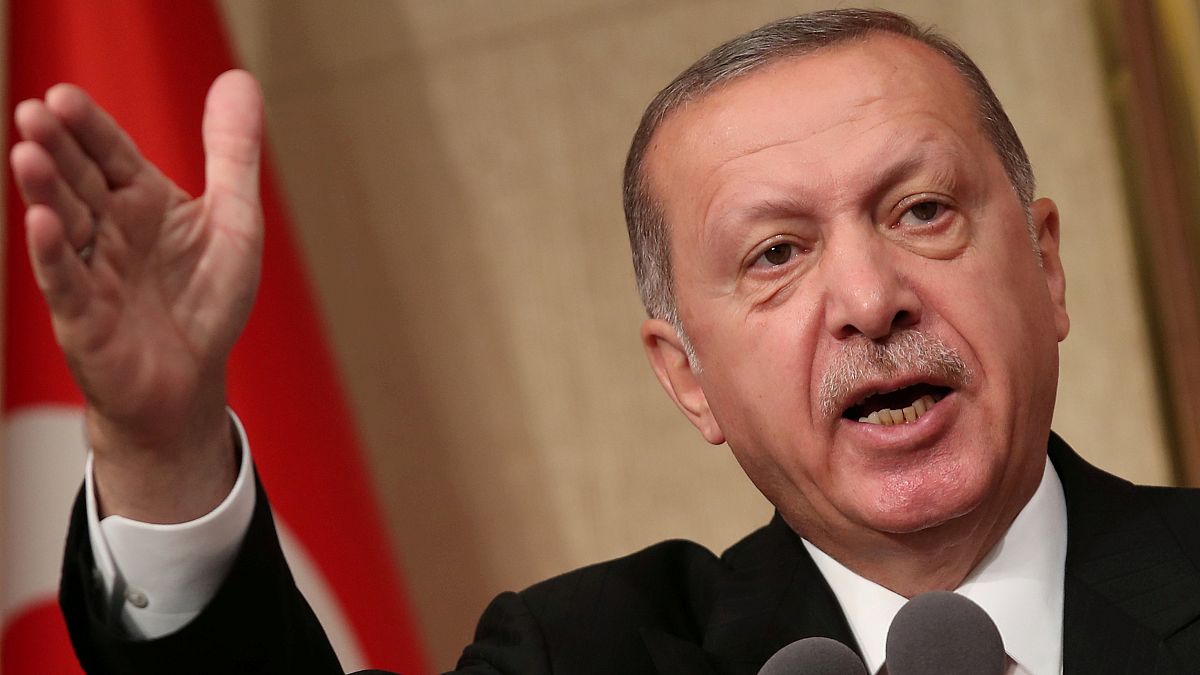Ankara is raising tariffs on cars, alcohol and tobacco imports from the US as the row between the two NATO allies intensifies.
Turkey has increased tariffs on some US imports, including cars, alcohol, and tobacco, as the diplomatic row between Ankara and Washington escalates.
The latest moves follow President Recep Tayyip Erdogan’s announcement that Turkey will boycott American electronic goods. The tension between the NATO allies has been cranked up over Turkey’s detention of a pastor, with the fallout sending the lira tumbling to record lows against the dollar.
A decree published in Turkey’s Official Gazette and signed by the president raises tariffs on passenger cars to 120 percent, on alcoholic drinks to 140 percent, and on leaf tobacco to 60 percent. Tariffs have also been increased on goods such as cosmetics, rice and coal.
Vice President Fuat Oktay wrote on Twitter that the increase in duties were in response to “deliberate attacks on our economy” by the US administration.
On Tuesday, the White House said President Trump was frustrated that Turkey had not released Andrew Brunson, the evangelical pastor held on terrorism charges that Washington believes are fabricated.
Reuters quoted an official as saying more economic pressures may be in store for Turkey unless steps are taken “in the next few days or a week”.
Apple or Vestel?
Earlier in the day, Tayyip Erdogan said Turkey would boycott electronic goods from the United States – suggesting people can use Samsung or Turkish Vestel devices instead of iPhones.
However, Vestel has only a tiny share of the market and it is uncertain how a boycott will be put into practice.
The president issued a rallying cry for unity to resist what he has described as an economic war waged by the US.
"Together with our people, we will stand decisively against the dollar, forex prices, inflation and interest rates. We will protect our economic independence by being tight-knit together," he said.
The lira recovered on Tuesday from near-record lows, helped by liquidity measures from the Turkish central bank. However, the currency remains volatile, with no signs of interest rate rises to combat high inflation and an overheating economy.
Russian solidarity
Erdogan has said Turkey needs to find “new friends” because of the row with its NATO ally. Russia has expressed its solidarity, although the steps Moscow might take are uncertain.
Visiting Ankara, Russia’s Foreign Minister Sergei Lavrov accused the Trump administration of abandoning diplomacy for “sanctions and blackmail”. Appearing alongside him, Turkey’s Foreign Minister Mevlut Cavusoglu said “the era of bullying must end”.
Lavrov echoed Erdogan’s calls for countries to use their national currencies rather than the dollar in global trade, but there were no firm commitments on help for Turkey.
Turkey’s ambassador to the US, Serdar Kilic, tweeted comments from the US Chamber of Commerce which warned that the tit-for-tat tariffs and boycotts “ threaten both countries' economic interests and put at risk an alliance that has proven its value over decades”.
Leading Turkish business groups have warned that tighter monetary policy is needed to stabilise the Turkish lira and disputes should be resolved via diplomacy, Hurriyet Daily News reported.
However, the extent to which economic or strategic considerations count is in question, amid what one analyst has described as “a battle between two presidents”.


